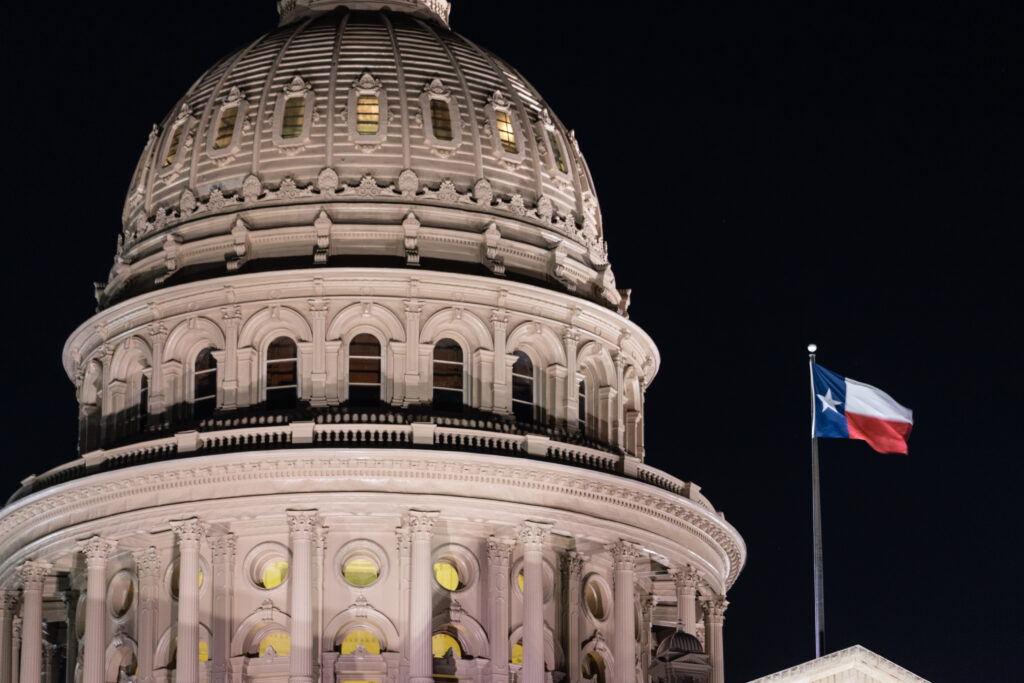The question on everyone’s minds used to be, “what is SB4?” Now, however, the question seems to be “will SB 4 go into effect?” As litigation challenging the Texas law ping-pongs through the courts, immigrants and advocates keep a close eye on its status and implications for newly arriving migrants and communities of color living throughout the state. As of March 28, 2024, the law remains enjoined, but ProBAR is closely watching the litigation and preparing information and advice for our clients and our community.
Texas Senate Bill 4 is an anti-immigrant law that has met significant criticism for the ways that it could endanger the civil rights of people of color and immigrant residents and potentially even prevent people in need of protection from requesting asylum, concerns shared by ABA President Mary Smith. Originally scheduled to go into effect March 5, the law was quickly met with two lawsuits: one from the American Civil Liberties Union of Texas (ACLU) and the Texas Civil Rights Project (TCRP) on behalf of the County of El Paso, Texas, and non-profits American Gateways and Las Americas Immigrant Advocacy Center, and a second from the U.S. Department of Justice.
After presiding over a hearing for the combined lawsuits in mid-February, U.S. District Judge David Ezra issued a preliminary injunction blocking SB 4 from going into effect, stating in his order that the law violated the Supremacy Clause of the U.S. Constitution, which affirms the federal government’s authority over laws governing matters of immigration. This decision would be reversed the very next day by the 5th U.S. Circuit Court of Appeals, only for the law to be blocked once again the following week by the Supreme Court, who then decided to allow the law to go into effect on March 19, only to have it blocked once again hours later by the 5th Circuit Court of Appeals who dissolved the stay on the original injunction issued by Judge Ezra. As of this writing, the injunction will remain in place until April 3rd, when the New Orleans-based court is scheduled to hear arguments regarding the Texas law’s legality.
Under SB 4, Texas would create three new state immigration criminal offenses: Illegal Entry, Illegal Reentry, and Refusal to Return to Foreign Nation. In the language of these offenses, “entry” qualifies as arrival in the United States by any means other than admission at a port of entry within the last 2 years, and “nation” defaults to Mexico, as the only foreign country sharing a border with Texas. Additionally, SB 4 would authorize and require state judges to issue orders to deport anyone convicted of these offenses back to the country from which they entered the state (Mexico) – even if they currently have an immigration application pending. According to the Texas Immigration Law Council (TXILC), even showing proof of a pending immigration application bears its own risk – as it “may also incriminate the person by providing proof the person is a non-citizen and entered Texas without inspection.”
In a region like the Rio Grande Valley, which has already seen increased police presence due to Operation Lone Star, Senate Bill 4 stands to transform even the most mundane encounters with up to 35 different types of peace officers (listed in Texas Code of Criminal Procedure Article 2.12) into opportunities for people to be questioned about their immigration status and potentially arrested for the state crime of Illegal Entry, should they not be able to prove their citizenship status in these encounters. Even if an arrested person has authorization to remain in the United States, has been granted asylum, or has been approved for DACA between June 15, 2012 and July 16, 2021, they could still be subject to arrest and imprisonment and not be able to raise their defense until they are taken to trial. Although people will be entitled to a government appointed attorney, most of these offenses will be decided early in the proceedings before a migrant has an opportunity access legal counsel.
As of March 28, 2024, SB 4 remains enjoined. The 5th Circuit Court of Appeals decided on March 19 to not only dissolve the administrative stay on the original injunction but to keep the injunction in place while the appeal process plays out; however, advocates continue to prepare for the possibility of implementation.
The Texas Immigration Law Council offers guidance for those looking to prepare themselves for what SB 4 could bring, citing the 4th, 5th, and 6th amendments as crucial knowledge to help immigrants and citizens alike avoid wrongful detention, arrest, and removal. “It is important that community members understand what type of conduct is criminalized…what the Constitutional rights are of all individuals, regardless of immigration status, and how to properly assert and invoke Constitutional rights to minimize the risks of arrest and removal for Illegal Entry and Illegal Reentry.”
Meanwhile, ProBAR is working diligently to prepare guidance and resources for our clients and community. As the litigation plays out, we will continue to closely follow the situation and adapt our resources to the changing reality. Keep an eye on our socials for updates.
For more information:
https://www.texastribune.org/2024/03/04/texas-sb4-illegal-immigration-law-5th-circuit-court-ruling/
https://www.aclutx.org/en/now-your-rights/know-your-rights-under-texas-deportation-scheme-sb4


